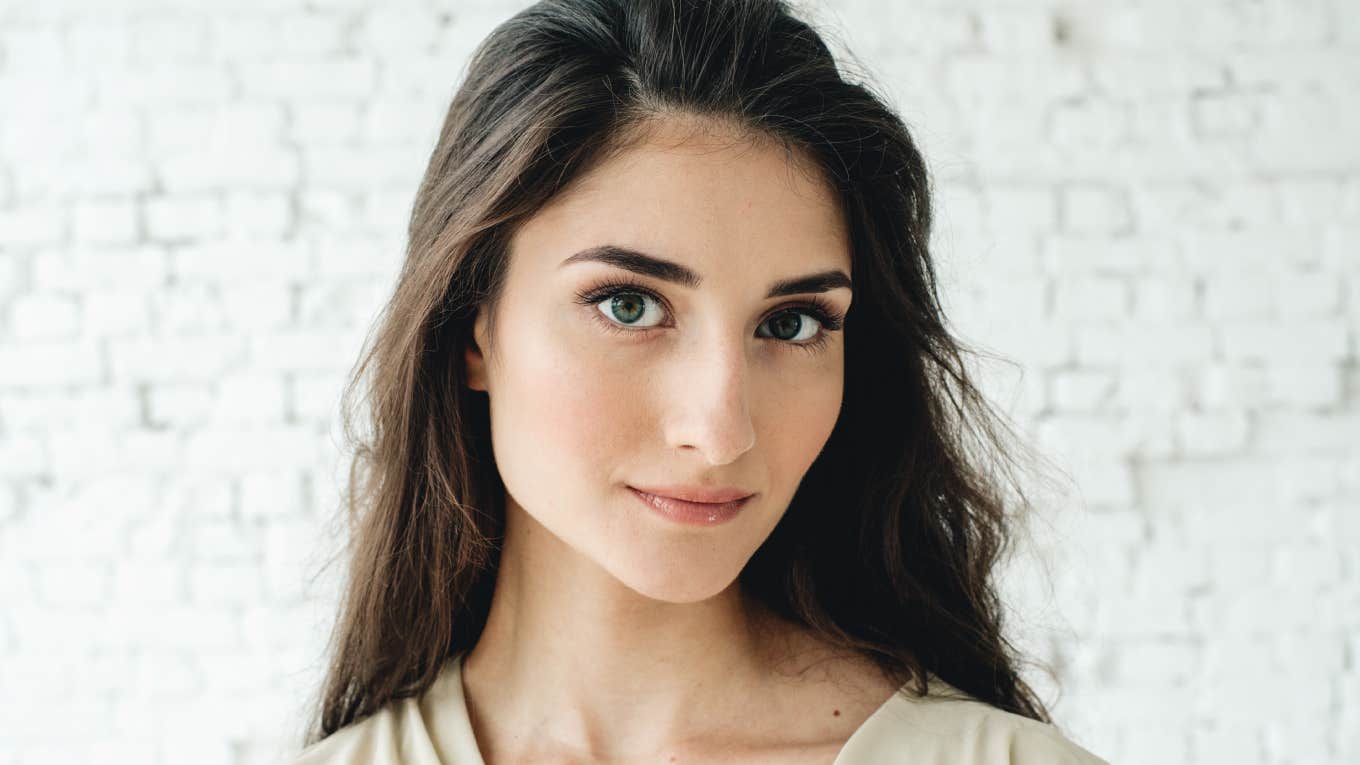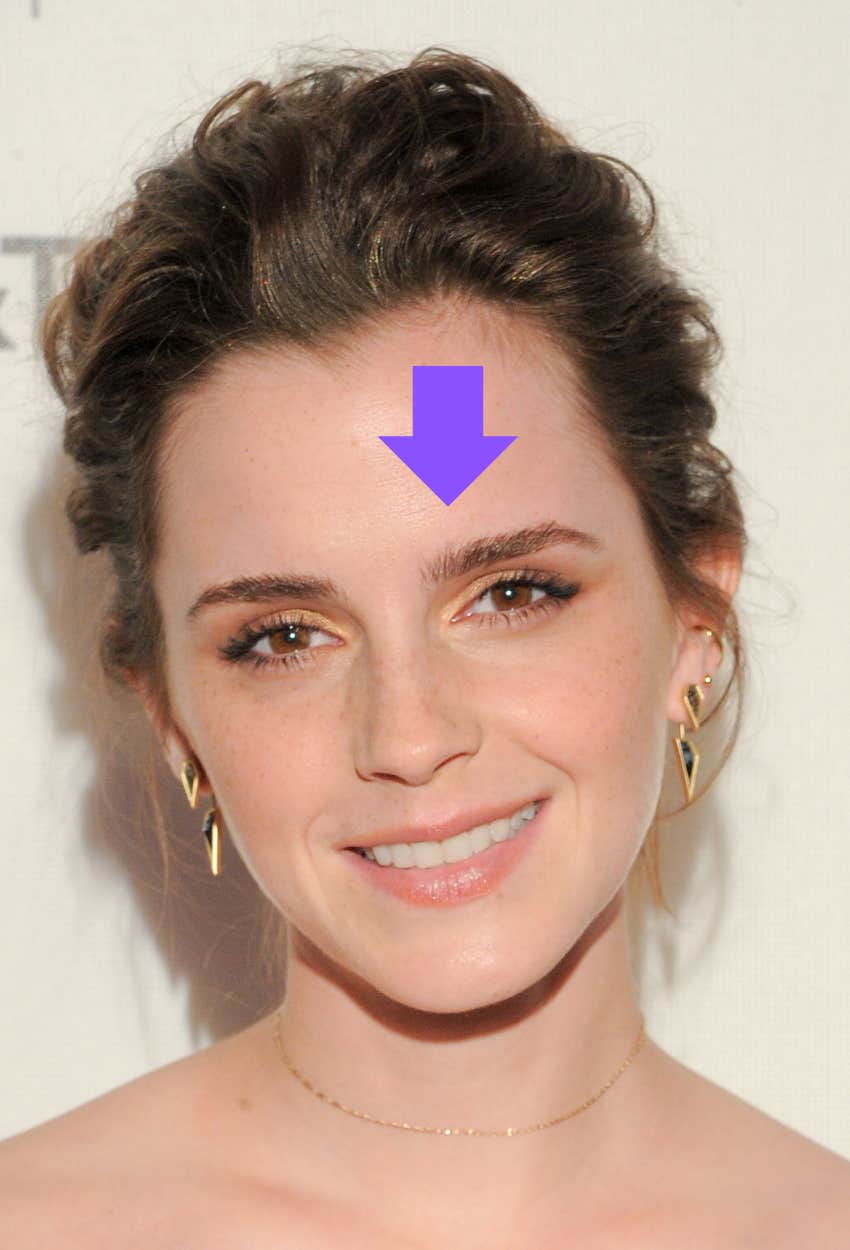This Tiny Detail In A Woman's Left Eyebrow Reveals Some Powerful Personality Traits
A woman's eyebrows can actually reveal a lot about her!
 Irina Big | Shutterstock
Irina Big | Shutterstock It's been said that the eyes are the windows to a person's soul, but what about their eyebrows? There was once a time when it was actually fashionable for a woman to pluck her eyebrows almost completely off, but thankfully, that trend is gone, and it seems that the bushier the brow, especially closer to the nose, the more revealing these expressive face caterpillars are when it comes to some distinct personality traits.
In an Instagram video, a makeup artist and eyebrow expert named Mila shared some interesting information regarding a woman's left eyebrow in particular. She claimed that in facial reading, the left eyebrow can hold a lot of meaning when it comes to a woman's personality, and apparently, the messier that left eyebrow is, the more you can tell about her authentic nature.
A tiny detail in a woman's left eyebrow reveals powerful personality traits.
In Mila's post, she showed multiple photos of women with bushy left eyebrows, including actresses Brooke Shields, Emma Watson, and Cara Delevingne. All of these women had a slightly messier beginning to their eyebrows, especially on the left side.
 Ron Adar | Shutterstock
Ron Adar | Shutterstock
"Some say this can reflect a creative, intense energy and a free-spirited nature, someone who values authenticity over perfection," she claimed. "In facial reading, the left side of the face is linked to emotions and personal life, which might suggest a spontaneous and deeply sensitive personality."
Mila pointed out that it's more of a symbolic observation than actually being based on scientific findings, but still, it's definitely an interesting and fascinating observation about women with a bushy/messy left eyebrow.
U.K.-based nail and brow retailer Sassy Saints confirmed Mia's assessment, writing, "Feathered eyebrows, with their soft and natural look, often indicate a free-spirited and creative soul. If you have feathered eyebrows, you're likely seen as someone with an artistic flair and a love for adventure."
Research has shown that the left side of your face is more flattering than the right.
In a 2012 study published in the journal Experimental Brain Research, researchers found that our left cheeks show a greater range of emotion than the right. Participants in the study were asked to rate the pleasantness of both sides of male and female faces on gray-scale photographs.
The research team, led by Kelsey Blackburn and James Schirillo from Wake Forest University, presented both original photographs and mirror-reversed images, so that an original right-cheek image appeared to be a left-cheek image and vice versa. They found that there was a strong preference for left-sided portraits, regardless of whether the pictures were originally taken on the left or mirror-reversed.
The left side of the face was also rated as more aesthetically pleasing for both male and female posers. The participants' preferences were also confirmed by measurements of pupil size, which can often be linked to arousal. "Our results suggest that posers' left cheeks tend to exhibit a greater intensity of emotion, which observers find more aesthetically pleasing," researchers noted.
"Our findings provide support for a number of concepts – the notions of lateralized emotion and right hemispheric dominance, with the right side of the brain controlling the left side of the face during emotional expression."
Further research even found that, regardless of medium, when posing for a portrait or picture, people tended to favor the left side of their face more. So, whether you have bushy eyebrows or not, the left side of your face might be doing most of the heavy lifting anyway.
Not only does the left side of your face show more emotion, but it can tell an entirely different story than the right, which is rather interesting!
Nia Tipton is a staff writer with a bachelor's degree in creative writing and journalism who covers news and lifestyle topics that focus on psychology, relationships, and the human experience.

